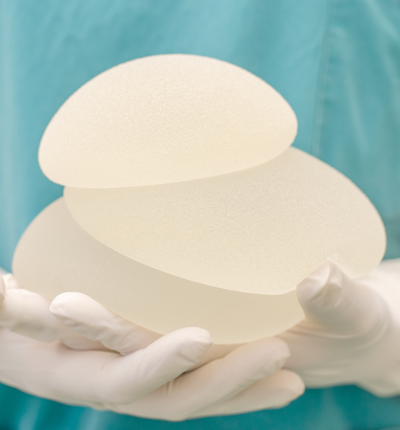
The UK Breast and Cosmetic Implant Registry confirms 15 additional cases of 'ALCL' in the last year
A report from the UK's Breast and Cosmetic Implant Registry (BCIR) has confirmed that 15 additional cases of rare lymphatic cancer ALCL have been diagnosed in the UK in the last 12 months. The cancer has been linked to textured breast implants; this is known as breast implant associated anaplastic large cell lymphoma (BIA-ALCL).
Posted on 13 December 2019
The BCIR’s updated report provides an overview of data collected by the registry between July 2018 and June 2019. The registry only began collecting data on 10 October 2016.
For the first time the BCIR reports specifically on instances of anaplastic-large cell lymphoma noting that: “Between July 2018 and July 2019, 15 people had breast implant operations during which anaplastic large cell lymphomas (ALCL) was found". The BCIR report goes on to state: "The registry cannot identify whether these cases of ALCL are instance of breast implant associated anaplastic large cell lymphoma (BIA-ALCL)”.
However, despite the BCIR being unable to confirm the instances of ALCL are linked to breast implants, the MHRA’s tally of confirmed BIA-ALCL cases in the UK has risen from 45 (January 2019) to 59 (December 2019). This suggests that other sources have provided sufficient evidence to link the presentation of at least 14 of these newly identified cases with confirmed BIA-ALCL diagnoses.
Zahra Nanji, product safety lawyer, who is working with women diagnosed with BIA-ALCL commented:
“It is important to note that almost a quarter of all BIA-ALCL cases in the UK have been identified within the last 12 months. That suggests two things: (1) that doctors and patients may be becoming more aware of this rare, but potentially serious, complication of breast implant surgery; and (2) that with growing awareness we are likely to see the number of diagnosed BIA-ALCL cases in the UK increase. This makes sense when you look at the incidence rates being reported in Australia and other countries, and raises questions about why our own regulator, the MHRA, isn’t following the example of other regulators and removing all textured implants from the UK market, and providing more transparent access to data regarding this disease.”
As stated by the authors of the BCIR report, the aspiration of the BCIR is to facilitate international comparison with other registries, and tracking of device performance, for the purposes of safeguarding individuals in the UK who are implanted with cosmetic devices. However, this will only be possible when the BCIR holds enough data of the required quality to ensure statistical robustness.
This years’ BCIR report confirms that, at the moment, the Registry is only collecting data in relation to just over one third of cases. This suggests that two thirds of all people who had breast implant surgery in July 2017 to June 2018 are not recorded in the registry.
Recent publications in the medical literature from Australia have indicated BIA-ALCL incidence rates, for some implant brands, of between 1:2,000 and 1:6,000 cases. This contrasts significantly with the data published by the MHRA of BIA-ALCL occurring in 1:24,000 cases.
New this year is the BCIR’s breakdown of the devices sold in the UK by specific manufacturers, albeit there is no indication of what specific devices were sold by each manufacturer. Nevertheless, it is noted that Allergan and Nagor devices continued to be implanted within the NHS between July 2018 and June 2019. The ban on Allergan Biocell implants in December 2018 in the UK should mean that the Allergan figures do not include the implantation of Biocell breast implants on the NHS after December 2018; however, Nagor breast implants remain on the UK market and may be included within range of cosmetic devices still being implanted within the NHS.


